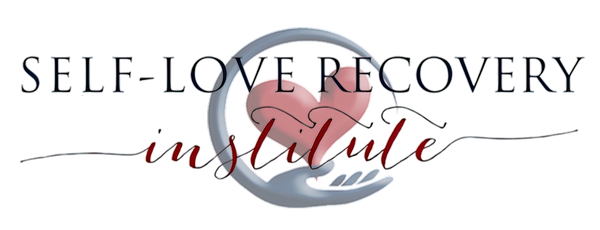
Written by Ross Ross Rosenberg, M.Ed., LCPC,CADC
Self-Love Recovery Institute – President/CEO
Psychotherapist, Educator, Author, Expert Witness
Excerpt from Chapter 7 from “The Human Magnet Syndrome: The Codependent Narcissist Trap (2018)".
Codependency Anorexia occurs when a codependent surrenders to their life-long relationship pattern to destructive pathological narcissists. I define codependency as an individual psychopathology that manifests within relationships. The codependent habitually find themselves in relationships with pathological narcissists, with whom they give the lion’s share of love, respect, and care (LRC) while being denied the same. Although they are consistently on the short end of the receiving stick, they stay in the relationship because they are both afraid of being alone and believe that if given enough time, they will be able to change or control the narcissist’s selfishness and entitlement.
Codependency Anorexia occurs when they hit bottom and can no longer bear the pain and the harm meted out to them by their malevolent pathological narcissists. It is paradoxical in a sense, as it occurs during a moment of clarity, when the codependent realizes that they are completely powerless to stop their attraction to lovers who, in the beginning, feel so right, but shortly thereafter, hurt them so badly. In an effort to protect themselves from the long line of “soul mates,” who unexpectedly convert to “cellmates,” they flip their vulnerability switch to “off,” which results in a complete shutdown of their emotional, relational, and sexual machinery.
This defense mechanism serves to protect codependents from the cascade of resulting consequences of their debilitating codependent love choices. Although their intention is to avoid getting pummeled again by the next narcissist, they unknowingly insulate themselves from the very human experience of intimate romantic love. By denying their human need to connect and love passionately, they are, in a sense, artificially neutralizing The Human Magnet Syndrome. Or in other words, they are removing themselves from any possibility of close romantic love, healthy or not.
To maintain their codependent anorexia, codependents ultimately have to divorce themselves from their emotional and sexual selves. As a result, they “starve” themselves from the very human need to connect romantically, intimately, and sexually. Such deprivation often leads to long-term mental and relational health problems.
In the codependent anorexic state, the codependent is hypervigilant of any person or situation that would lead to a potentially harmful and dangerous intimate relationship. They often overcompensate in social situations to avoid either showing interest in someone else or accidentally reacting to someone else overtures. To that end, they also deprive themselves of everyday social events, in order to not accidentally bump against a vulnerable or threatening situation or person. And if a person or event does threaten the codependency anorexic barrier, a shock of extreme anxiety uncomfortably steer them back onto their self-depriving but safe course.
So what is the codependent anorexic supposed to do? The moment of decision is best summarized in Anaïs Nin’s famous saying, “And the day came when the risk to remain tight in a bud was more painful than the risk it took to blossom.” The following is a list of 10 must-do’s if one is suffering from Codependency Anorexia.
- Get evaluated for Post Traumatic Stress Disorder (PTSD), as the mistreatment from pathological narcissists may have caused this disorder.
- Get into therapy with a practitioner who is experienced and successful in treating codependency, PTSD, and who understands the Human Magnet Syndrome.
- Actively participate in Codependency Anonymous (CODA.org).
- Stop or curtail any substance abuse, especially if it is self-medicating in nature.
- Start talking about your loneliness and fear of getting hurt with safe friends or family, therapists, and/or recovery group peers.
- Expand platonic relationships by subtly and progressively sharing more intimate or personal information about yourself.
- Participate in group activities that have no fix-up agenda.
- Practice being courageous and vulnerable: disclose to a safe friend that you have Codependency Anorexia.
- Practice or rehearse a conversation during which you disclose to a potential romantic interest that you are frightened of getting hurt and need to go very slowly in the relationship.
- DO NOT use Internet dating sites, even if you feel ready to do so.
ABOUT ROSS
Ross Rosenberg M.Ed., LCPC, CADC, is Self-Love Recovery Institute’s CEO and primary contributor. His internationally recognized expertise includes pathological narcissism, narcissistic abuse, and attachment trauma. Ross’s “Codependency Cure™ Treatment Program” provides innovative and results-oriented treatment.
Ross’s expert educational and inspirational seminars have earned him international acclaim, including his 23 million YouTube video views and 250K subscribers. In addition to being featured on national TV and radio, his “Human Magnet Syndrome” books sold over 150K copies and are published in 12 languages. Ross provides expert testimony/witness services.
More about Ross and his educational and inspirational work can be found at www.SelfLoveRecovery.com.
Join us on Facebook, Instagram, Twitter, and now TikTok!
https://www.facebook.com/TheCodependencyCure
https://www.instagram.com/rossrosenberg_slri
https://www.twitter.com/rossrosenberg1
https://www.tiktok.com/@rossrosenberg1


0 comments